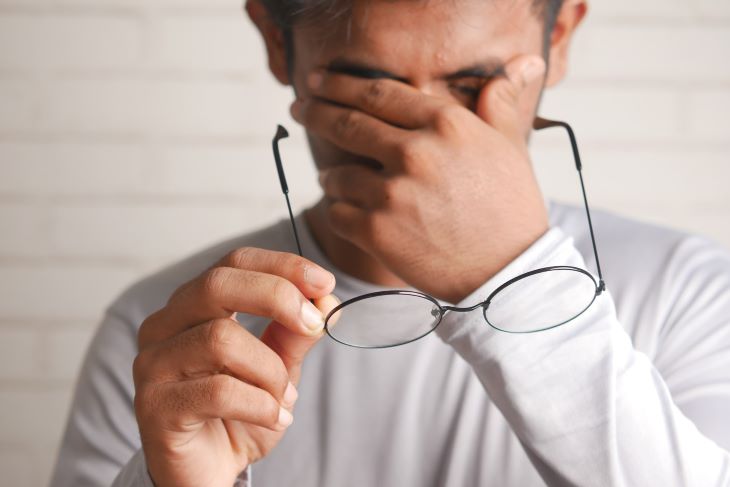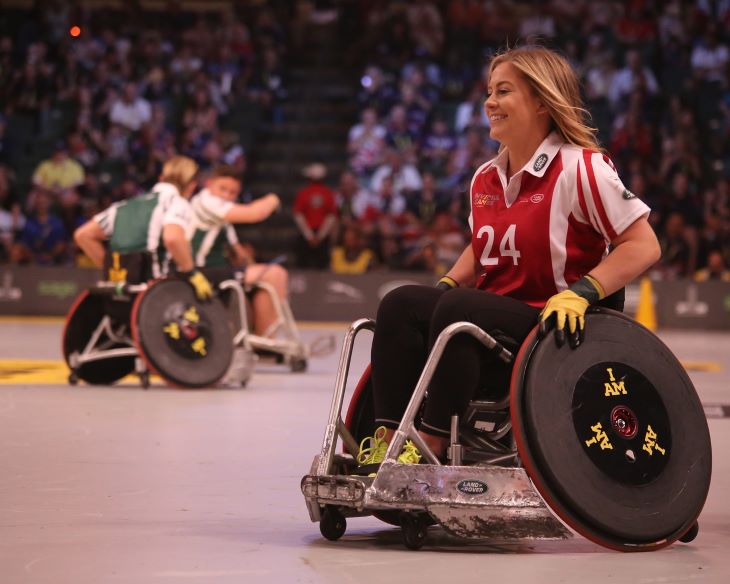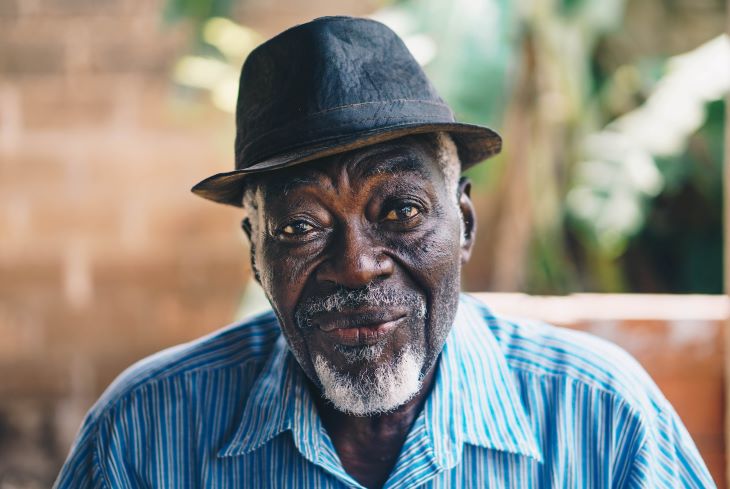Many people suffer from chronic pain. Whether it is the result of an accident or long-term medical condition, the pain and discomfort it causes can take a serious toll on how individuals live their lives.
Treating chronic pain with medication can be very effective, but there are risks that need to be heeded when it comes to prescription drugs.
Particularly, certain medications used to alleviate continuous or longstanding pain can be highly addictive.
What is chronic pain?

The term ‘chronic pain’ is used to describe pain or discomfort in the body that is almost continuous or has been present for a long period of time, usually for at least a few months after an accident or injury.
These pains are not limited to any specific area of the body, and can manifest in a variety of different ways, including:
- Joint pain
- Tingling or numbness
- Nerve pain
- Arthritis
- Migraines
- Breathing trouble
In addition to these physical complications, chronic pain can also impact mental health.
Those who suffer can experience depression, anxiety, insomnia, as well as other psychological obstacles.
Of course, these symptoms will also be joined by the emotional troubles that spark from having to deal with the challenges created by chronic pain.
Individuals can therefore experience emotional lows and loss of appetite.
At OK Rehab, we offer free advice from a team of non-judgemental professionals, many of whom are in recovery and understand how hard it can be to change your relationship with addiction.
To find out more about chronic pain and addiction, simply reach out to our 24/7, confidential hotline on 0800 326 5559.
How does chronic pain occur?

The cause of chronic pain can vary for each person. It can be the result of a one-off accident – such as a car or bike collision – or a disease – such as cancer, obesity, or Multiple Sclerosis.
It must also be noted that chronic pain can develop as a result of how an individual lives their life.
For example, even in the absence of a long-term illness or debilitating accident, individuals can experience chronic pain as a result of poor sleep or repeated lifting of heavy objects.
At OK Rehab, we offer free advice from a team of non-judgemental professionals, many of whom are in recovery and understand how hard it can be to change your relationship with addiction.
To find out more about chronic pain and addiction, simply reach out to our 24/7, confidential hotline on 0800 326 5559.
Chronic pain and addiction

Unfortunately, the complications that come with chronic pain are not limited to the physical and psychological impacts that it has. Its treatment can also be problematic.
Treating chronic pain
One of the major links between chronic pain and addiction is through the medications used to treat pain.
To combat the effects of chronic pain, a range of medications can be prescribed by a medical professional or treatment facility.
Depending on the consequences an individual experiences, lots of different forms of medication can be provided.
If an individual experiences muscle pain, then anti-inflammatory medications can be used to target the problem area.
If they are predominantly struggling mentally, then anti-depressants can be used.
In severe cases, however, where other methods are not providing adequate relief, opioids such Hydrocodone or Oxycodone can be used to treat chronic pain [1].
These are drugs which attach to opioid receptors in the brain to inhibit the transmission of pain signals.
While all steps are taken to ensure that this method is as safe as possible, the use of opioids can lead to complications. Particularly, its impact on the brain can trigger addiction.
The impact of opioids

When alternative methods have been exhausted, opioids are turned to in order to alleviate chronic pain. The problems of using these drugs arise due to their high addiction potential.
When individuals begin taking opioids, they experience an immense ‘high’ that temporarily suspends their pain.
This ‘high’ is pleasurable, making them more relaxed and peaceful, and individuals can come to like how it makes them feel.
After sustained use, individuals can become dependent on this feeling, desperate to feel the same way again and not be able to control their consumption.
With more frequent use, individuals can start to develop a tolerance for opioids as their body becomes more and more accustomed to their effects.
To combat this, individuals try to take more of the substance, leading them to eventually need more and more of it.
At OK Rehab, we offer free advice from a team of non-judgemental professionals, many of whom are in recovery and understand how hard it can be to change your relationship with addiction.
To find out more about chronic pain and addiction, simply reach out to our 24/7, confidential hotline on 0800 326 5559.
Opioid withdrawal

When this latter stage of dependency develops, individuals find that they are unable to stop taking opioids. This is because their bodies are so used to taking the drug that they have become reliant on its chemical presence.
This physical dependency is so dangerous because of the withdrawal symptoms that it produces when individuals then try and stop their opioid consumption.
Such symptoms can include:
- Feeling sick
- Intense anxiety
- Cardiac complications
- Diarrhoea
- Profuse sweating
- Fever and flu symptoms
Avoiding addiction when treating chronic pain

After understanding the complications that can arise when treating chronic pain, it is important to address how they can be avoided.
While there is no definite way to determine whether a person will struggle with chronic pain and addiction, there are several steps that can be taken to reduce the chances of it happening [2]:
Creating a comprehensive treatment strategy
While medications such as opioids can be instrumental to the treatment of chronic pain, they should not be used in isolation. Instead, their prescription is best utilised as part of a wider treatment strategy.
When used as the sole pillar of treatment, it is easy for individuals to see medication as the only way to relieve their pain, and this kind of mindset can lead to addictive behaviour.
However, if an individual’s treatment is supplemented by physical rehabilitation, for example, they can see medication as only part of the solution, and see the relief of their pain as the result of not just taking drugs but also of pain relief exercises and therapy.
At OK Rehab, we offer free advice from a team of non-judgemental professionals, many of whom are in recovery and understand how hard it can be to change your relationship with addiction.
To find out more about chronic pain and addiction, simply reach out to our 24/7, confidential hotline on 0800 326 5559.
Addiction vulnerability

Addictions do not develop in isolation. In fact, there are theories which suggest that certain individuals can be much more vulnerable to developing them as a result of things such as their genetics and upbringing [3].
As a result, it can be useful to conduct assessments into how likely an individual is to develop an addiction.
This might involve asking them about the prominence of addiction in their family, what their drug and alcohol consumption habits have been like in the past, and whether they have any mental or emotional conditions that might impact their relationship with addiction.
Chronic pain and addiction is often tightly linked with mental health conditions such as anxiety and depression.
This connection often referred to as dual diagnosis – and so these conditions should also be looked out for.
Tests like these can be pivotal for identifying individuals who are more at risk and helping them through the safe treatment of their chronic pain by taking necessary preventative steps.
For example, if an individual has a history of abusing alcohol in the past, then steps can be taken to reduce their contact with other addictive materials during treatment and focus on non-medication treatment options such as physical therapy.
Working together

As with any process of recovery or rehabilitation, treating chronic pain is best practised with open communication and cooperation. Avoiding the development of addiction during this process also relies on these principles.
First and foremost, communication between the medical professionals providing treatment and the individual receiving treatment must be open and honest.
If individuals acknowledge when they are struggling to control their consumption, it will lead to much swifter preventative action.
In a similar way, it can also help for medical professionals conducting the chronic pain treatment to have open communication with an individual’s GP.
This way, an individual’s medical history can be consulted, and treatment can work with this important information in mind to both improve the overall treatment strategy and reduce the chances of addiction developing.
At OK Rehab, we offer free advice from a team of non-judgemental professionals, many of whom are in recovery and understand how hard it can be to change your relationship with addiction.
To find out more about chronic pain and addiction, simply reach out to our 24/7, confidential hotline on 0800 326 5559.
Getting the right support with OK Rehab

Chronic pain is an incredibly difficult thing to treat and live with, so if you suffer with it and find yourself also beginning to develop a substance dependency, do not hesitate to seek help.
Addiction is an immensely destructive condition, and the last thing an individual with chronic pain needs is the additional physical and psychological problems that addiction causes.
At OK Rehab, we can provide top-quality advice and guidance as to how to best prevent and treat substance abuse, so if you or someone you care about is struggling, please get in touch.
At OK Rehab, we offer free advice from a team of non-judgemental professionals, many of whom are in recovery and understand how hard it can be to change your relationship with addiction.
To find out more about chronic pain and addiction, simply reach out to our 24/7, confidential hotline on 0800 326 5559.

References
[1] https://pubmed.ncbi.nlm.nih.gov/14567207/
[2] https://fpm.ac.uk/opioids-aware-opioids-addiction/substance-misuse-chronic-pain-management
[3] https://nida.nih.gov/publications/drugfacts/understanding-drug-use-addiction






